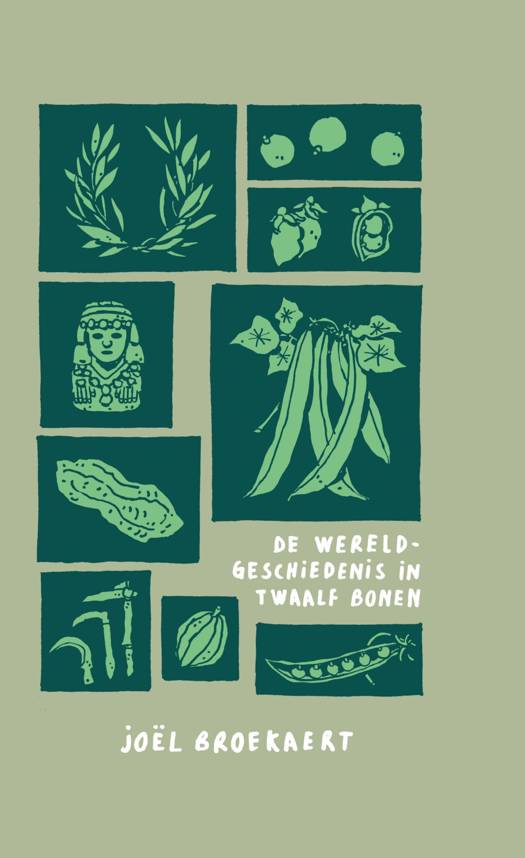‘The book reads like a novel, like a playful attempt to bring the bean closer to people and their plates. Required reading material for those in need of a little help during these dark months – because that’s what all those beans do.’ – Dagblad van het Noorden
‘(This book) is the ultimate ode to the bean and rightfully restores the honour of this ancient crop. Together, all stories form an entertaining and original world history. Through each bean, Broekaert tells a history of political world conflict, a cultural-historical time period or the global impact of an event. And he does this on a temporal scope that stretches from the neolithic period until the end of time. Magnificent!'
– Humanistisch Verbond
‘Broekaert's book is filled with interesting facts (...) each of the twelve chapters focuses on a different bean. Each chapter tells a fascinating piece of culinary history.’ – Best Science Books of 2023, EOS
Beans have never been sexy. Throughout history, they’ve always been seen as a poor person’s alternative to meat. And yet beans, apart from being incredibly nutritious and good for soil, have played a fundamental role in the human story.
Their domestication during the neolithic revolution was essential to our shift from hunter-gatherers to farmers. No surprise then that lentils feature prominently in the Old Testament. Fermented soy beans powered imperial China, just as fava beans enabled a population explosion in medieval Europe. Where Mendel’s experiments with peas laid the foundation for modern genetics, coffee beans turbocharged the French Revolution.
They are also connected with oppression and popular struggle: the common bean – and its many varieties (kidney, borlotti, green, white, etc.) – first made its way around the world after Colombus’ discovery of the Americas, and cacao beans were a major driver of the transatlantic slave trade.
In the United States, black-eyed peas emerged as a proud symbol of Black identity, while chickpeas remain a point of contention for identity politics in the Middle East.
Above all, perhaps, beans are our future: in these times of climate crisis, legumes such as lupine beans hold the key to juicy meat-alternatives and sustainable food systems.
Culinary journalist Joël Broekaert brings us a playful world history, as told through twelve beans.
